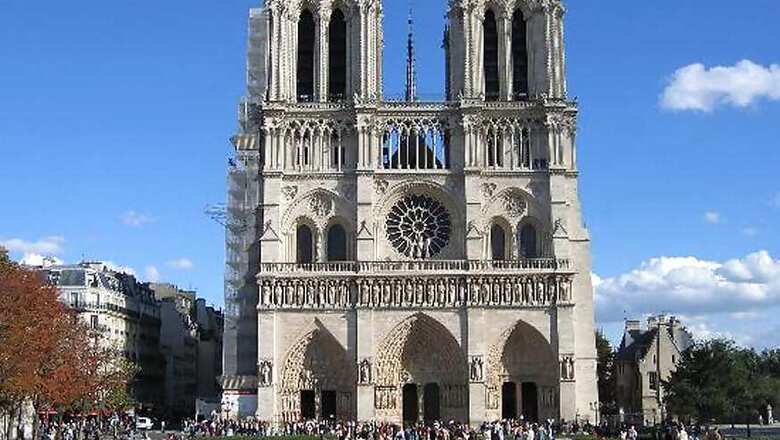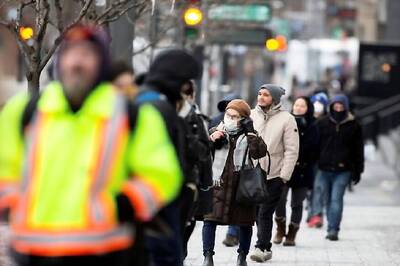
views
Paris: French workers on Tuesday began efforts to remove lead from the area around Notre-Dame cathedral which was contaminated by the devastating April fire, sparking public health concerns and forcing the suspension of restoration work.
Barriers were set up in the central Paris area as a truck delivered pipes and pumps to be used in cleaning the esplanade in front of the great medieval cathedral, an AFP reporter said.
Testing revealed dangerously high levels of lead at the site as well as at nearby schools and other buildings, prompting fears that workers and residents could have been contaminated by the toxic metal.
Hundreds of tonnes of lead in the roof and steeple melted during the April 15 blaze that nearly destroyed the gothic masterpiece, with winds spreading the particles well beyond the church grounds.
An area measuring 10,200 square metres will be cleansed using an array of techniques. The work is expected to last until August 23. The process involves vacuuming the pavement, then scrubbing it and finally using a high-pressure hose to both rinse the ground and recover the waste water.
On some kinds of stone, a special gel will be used which will harden after three days and then be removed, taking the harmful particles with it. Residents have accused the Paris authorities of underplaying the risk from the lead.
After weeks of denying the poisoning threat, authorities admitted in late July that anti-contamination measures had been inadequate. Two schools near the church were closed after hazardous lead levels were detected.
Critics have accused the city of failing to notify the public about the test results, while an environmental group has filed a lawsuit alleging that officials failed to sufficiently contain the contamination.
The health fears prompted the suspension of work to make the church safe after the fire. Securing the structure is a prerequisite for the start of full restoration work.
The vault in particular is at risk of collapse and the process of consolidating it, which is due to resume on August 19 after a nearly-month-long hiatus, is scheduled to last until the autumn, according to the culture ministry.
Only then can an architect carry out a thorough check of the edifice. Paris prosecutors said in June a cigarette or an electrical fault could have started the fire and launched an investigation for criminal negligence, without naming a suspect.




















Comments
0 comment